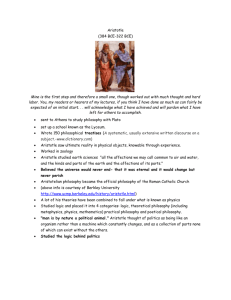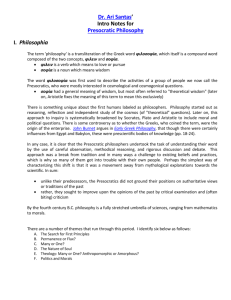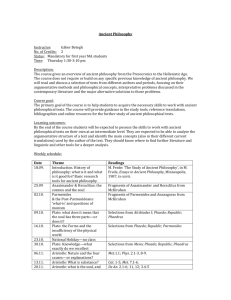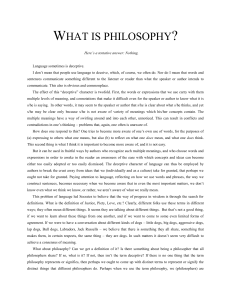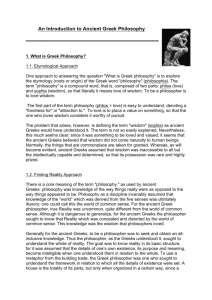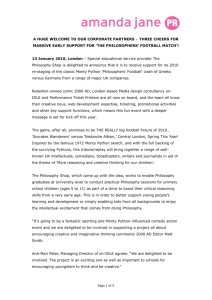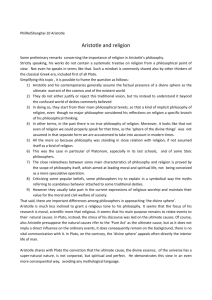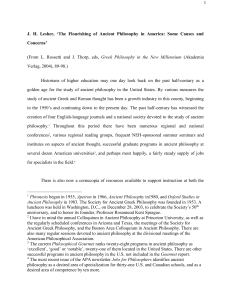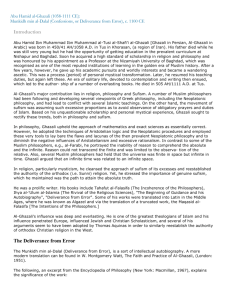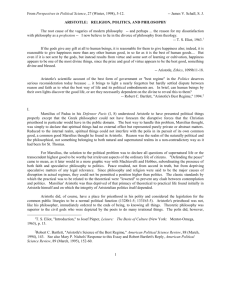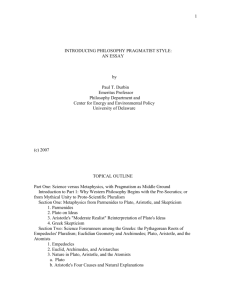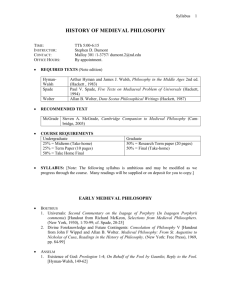Springer, Carl - The Evolution of Evolution
advertisement
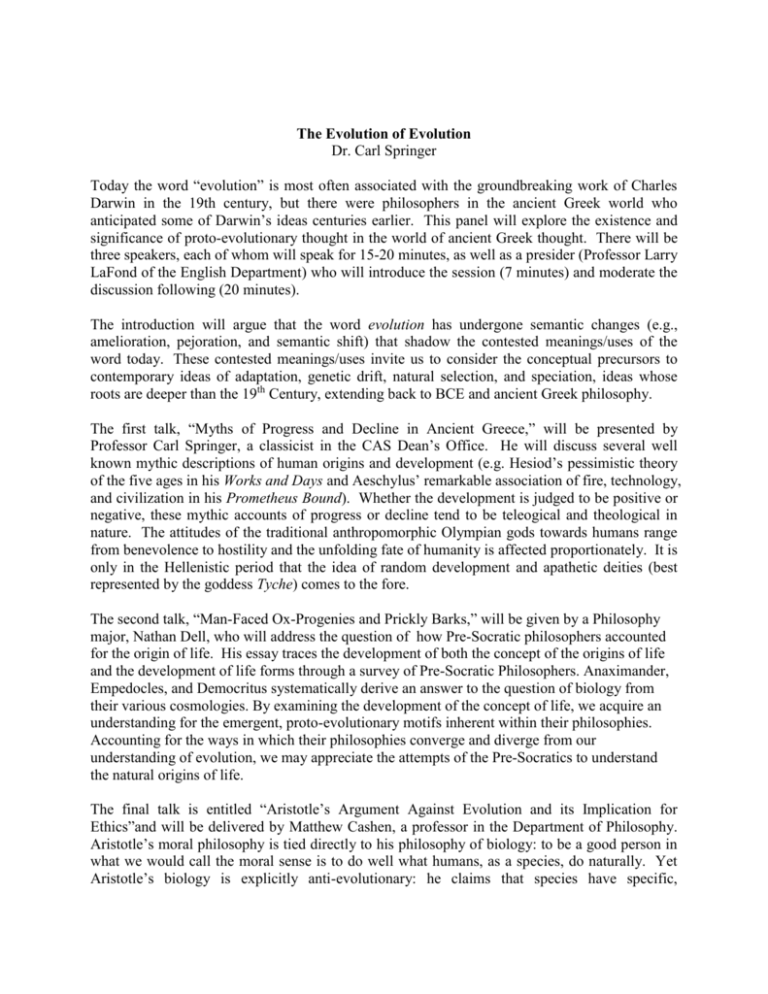
The Evolution of Evolution Dr. Carl Springer Today the word “evolution” is most often associated with the groundbreaking work of Charles Darwin in the 19th century, but there were philosophers in the ancient Greek world who anticipated some of Darwin’s ideas centuries earlier. This panel will explore the existence and significance of proto-evolutionary thought in the world of ancient Greek thought. There will be three speakers, each of whom will speak for 15-20 minutes, as well as a presider (Professor Larry LaFond of the English Department) who will introduce the session (7 minutes) and moderate the discussion following (20 minutes). The introduction will argue that the word evolution has undergone semantic changes (e.g., amelioration, pejoration, and semantic shift) that shadow the contested meanings/uses of the word today. These contested meanings/uses invite us to consider the conceptual precursors to contemporary ideas of adaptation, genetic drift, natural selection, and speciation, ideas whose roots are deeper than the 19th Century, extending back to BCE and ancient Greek philosophy. The first talk, “Myths of Progress and Decline in Ancient Greece,” will be presented by Professor Carl Springer, a classicist in the CAS Dean’s Office. He will discuss several well known mythic descriptions of human origins and development (e.g. Hesiod’s pessimistic theory of the five ages in his Works and Days and Aeschylus’ remarkable association of fire, technology, and civilization in his Prometheus Bound). Whether the development is judged to be positive or negative, these mythic accounts of progress or decline tend to be teleogical and theological in nature. The attitudes of the traditional anthropomorphic Olympian gods towards humans range from benevolence to hostility and the unfolding fate of humanity is affected proportionately. It is only in the Hellenistic period that the idea of random development and apathetic deities (best represented by the goddess Tyche) comes to the fore. The second talk, “Man-Faced Ox-Progenies and Prickly Barks,” will be given by a Philosophy major, Nathan Dell, who will address the question of how Pre-Socratic philosophers accounted for the origin of life. His essay traces the development of both the concept of the origins of life and the development of life forms through a survey of Pre-Socratic Philosophers. Anaximander, Empedocles, and Democritus systematically derive an answer to the question of biology from their various cosmologies. By examining the development of the concept of life, we acquire an understanding for the emergent, proto-evolutionary motifs inherent within their philosophies. Accounting for the ways in which their philosophies converge and diverge from our understanding of evolution, we may appreciate the attempts of the Pre-Socratics to understand the natural origins of life. The final talk is entitled “Aristotle’s Argument Against Evolution and its Implication for Ethics”and will be delivered by Matthew Cashen, a professor in the Department of Philosophy. Aristotle’s moral philosophy is tied directly to his philosophy of biology: to be a good person in what we would call the moral sense is to do well what humans, as a species, do naturally. Yet Aristotle’s biology is explicitly anti-evolutionary: he claims that species have specific, unchanging natures and he argues against the proto-evolutionary views of philosophers like Democritus and Empedocles. In his talk, Cashen explores the justification for Aristotle’s antievolutionary views and their implications for his moral philosophy. We anticipate that there will be about 20 in attendance at the session, students and faculty primarily from humanities departments. We will need no special equipment for our presentations. 90 minutes total.


